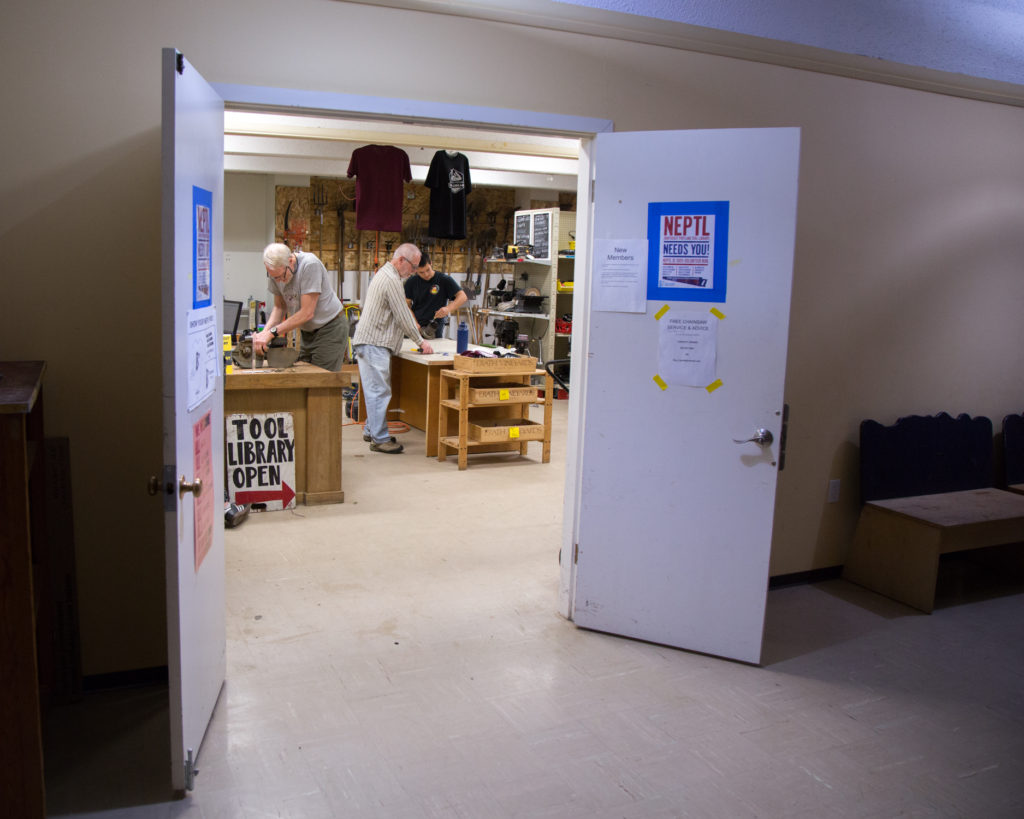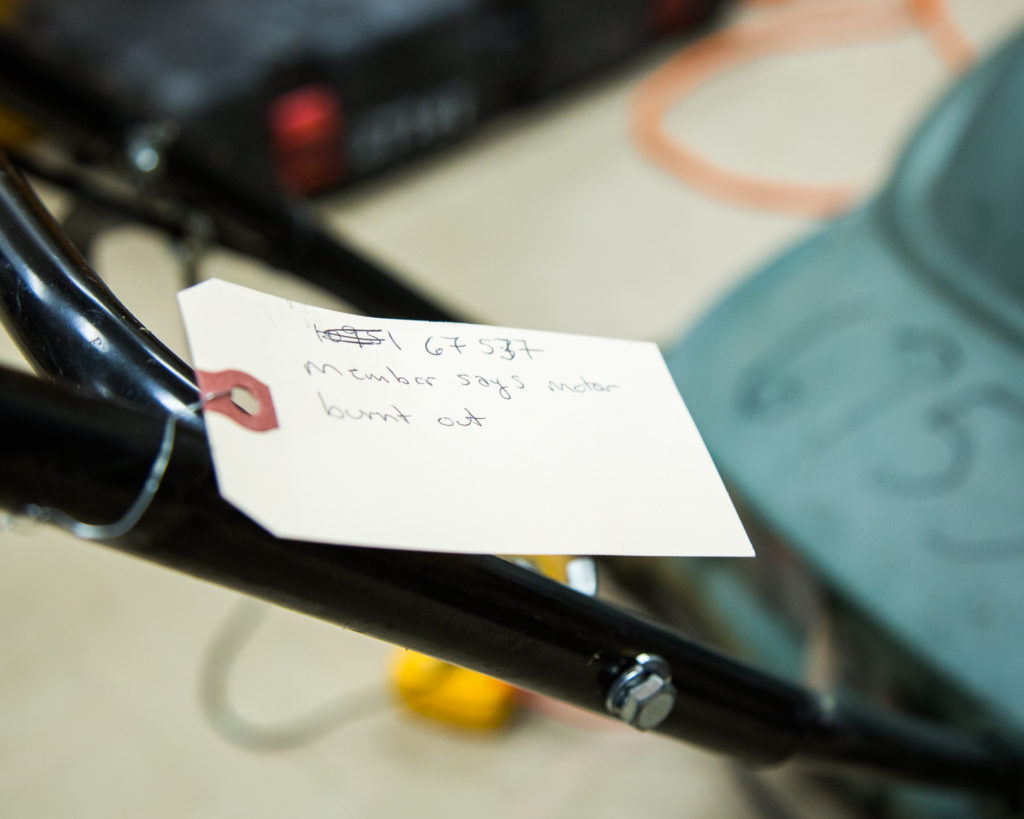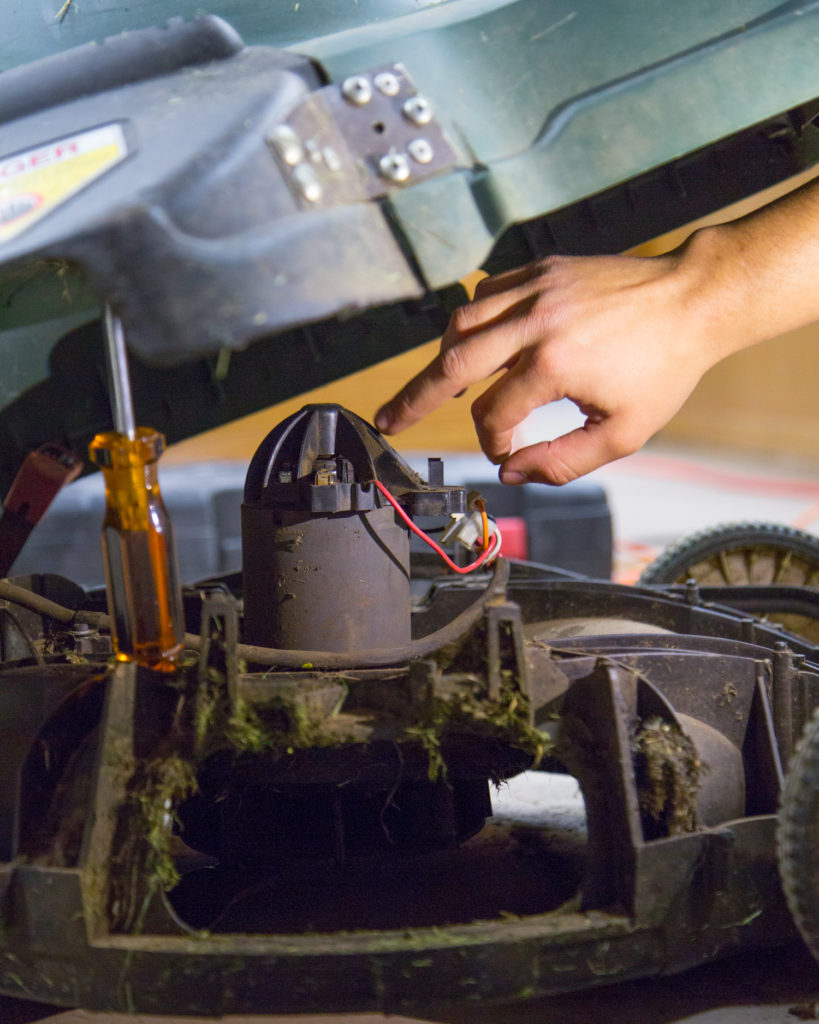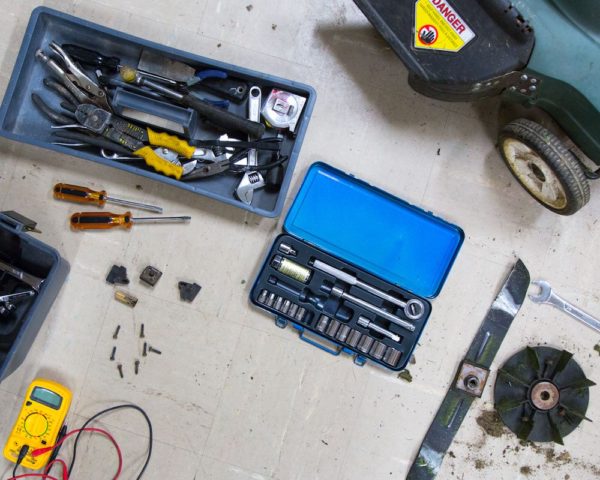“You do not need any prior knowledge about tools,” they said. “Just come on in if you want to help out,” they said.
The “they” in this scenario was the Northeast Portland Tool Library’s website, and the “you” was me, an individual community member who, I will freely admit, had virtually no prior knowledge about tools. The situation at hand was the tool library’s twice-monthly tool repair party, wherein volunteers do their best to fix borrowed tools that have been returned, in whatever way, broken.
As the reader may know, and as we ourselves have written about, Portland’s tool libraries are a community resource where people can check out tools (lawnmowers! chop saws! drill bits! oh my!) for up to a week, totally for free. These tools are well-used and, consequently, well-worn. To keep up with their inventory needing repair, NEPTL holds events twice a month, where volunteers, regardless of their experience level, can “show up and help out.”
So, a while back, on a free Monday morning, I showed up to help out. Here’s what I learned.

The tool repair work parties are held in the basement of Redeemer Lutheran Church in NE Portland.
1.) Experience and familiarity with tools and repair is not strictly necessary – but without it, you’ll need to ask for help.
As a novice, this was my primary curiosity. Walking into this volunteer event, I felt like someone showing up to a potluck empty-handed: technically allowed, but still a little awkward. When I arrived, a couple of other volunteers were already tinkering away on projects. The coordinator of the event, Dallas, was friendly and welcoming and pointed me toward the shelf where the broken tools lived, each tagged with a scrap of paper detailing their issue. Generally, volunteers look through available projects and choose one they feel up to tackling. When I made it clear that I really, truly did not know where to start, he perused the shelf with me, looking for something simple.

A tagged tool at the repair party in need of fixing.
2.) If you’re new to repair, and patient with figuring things out, the resources (and people) are there to help you.
Dallas helped me select a palm sander in need of a new internal rubber washer. He then led me to the computer available to volunteers, and a website where one could find an exploded diagram of virtually any tool by entering a serial number. Together, we located the rubber washer on the screen, and determined how to take the tool apart to access it.
I showed up on a day where Dallas had a lot of free time to help out; it was a relatively small crowd. The following month, I visited again on a much busier Monday morning – upwards of six volunteer fixers, working on items from air compressors to lawnmowers. While Dallas was more occupied getting volunteers oriented on projects and less available to walk me through a step-by-step repair, I chatted with other knowledgeable fixers, and watched them wander over to each others’ projects or to the computer when one of them got stuck. I also discovered that, while a couple of volunteers had backgrounds in maintenance, most, like me, had showed up to their first event with little experience, and were learning as they went.

A volunteer fixer indicates the area needing attention.
3.) Even a minor repair feels pretty dang satisfying to complete.
That morning with the palm sander, I literally unscrewed the base of the tool to reveal a worn washer, removed it with a pair of pincers, stretched the new washer into place, and screwed the tool back together. Dallas plugged the sander in, and it buzzed to life, functioning as designed.
The sense of accomplishment that flooded my body was immediate and total, almost comical in its purity, considering the scale of the repair and the amount of assistance I required to complete it. But I’m trying a fun new thing: letting myself celebrate victories, on whatever scale they come. Dallas was smiling at me. “You did it!” he said.
I did not have any prior knowledge about tools. I showed up because I wanted to help out. I did it. And so can you.
NEPTL hosts tool repair work parties twice monthly, on first Mondays and second Wednesdays. All are welcome, and sometimes there are even snacks. For more information, visit https://www.neptl.org/volunteer.
